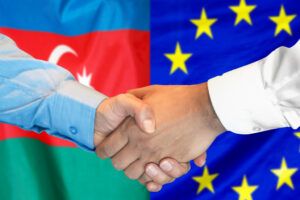Nikoloz Khatiashvili, Foreign Policy Research Fellow at Geocase
European Committee of the Regions in a recent opinion calls for the EU to adopt a more flexible approach to countries in the Eastern Partnership and to work more closely with local and regional authorities. The CoR’s opinion suggests that the EU should look at the region in a more global way, by identifying forms of potential cooperation – via the Eastern Partnership (EaP) – with countries in the Balkans and in Central Asia.
We have interviewed key experts from the EaP countries to find out their goals and priorities in relations with Central Asian countries. Here are the answers from Georgia.
What joint programs exist or are planned in your country for cooperation with Central Asia? Can the EU help this rapprochement?
Historically, Georgia was always a bridge between Europe and Central Asia and an integral part of the Silk Road. Trade and Economic Relations between Georgia and Central Asia are stable and becoming more active every year. Nevertheless, in the context of the implementation of joint projects with the European Union, the relations are not so active, which is primarily caused by the foreign policy approaches of the Central Asian countries.
In terms of cooperation within the European Union, the EU-supported TACIS (Technical Assistance to the Commonwealth of Independent States”) program has been operating since 1991, which promoted the development of economic and political ties between the European Union and the participating countries of Eastern Europe, the Caucasus and Central Asia. In the early 2000s, this initiative was replaced by various programs, and Georgia – as a frontrunner country in terms of reforms and democratic development in the region, became a member of new initiatives, which meant faster and sectoral integration with the European Union. Currently, Georgia is a member of the Eastern Partnership and, as a frontrunner of EaP, participates in the format of the “Associated Trio” together with Ukraine and Moldova. Consequently, at the moment, Georgia and the Central Asian countries do not participate in the common important initiatives under the European Union’s support.
Recent geopolitical shifts and the ongoing war in Ukraine have completely changed the international system and created the need for new approaches to both the security and economic spheres. For years, the European Union was largely dependent on Russian energy resources, and the transportation of various goods from the countries of Far and Central Asia was mainly carried out through Russia. After Russia’s invasion of Ukraine, the EU finally realized that dependence on Russia in terms of energy and transit gives the Kremlin additional leverage over Europe, which undermines European security and hinders EU decision-making boldness and flexibility. Taking into consideration the above mentioned factors, Europe has started revision of its energy and economic policy. Since February 2022, we have seen that Europe has significantly reduced imports of Russian energy resources to the European market and, in parallel, began to look for new sources of supply chains. It should be emphasized that the volume of energy resources supplied from Azerbaijan via Georgia to Europe and the amount of cargo transportation from Central and Far Asia through Georgia have increased significantly. The Central Asian region is of high priority for the EU and their interest is to strengthen relations and connectivity with the CA states.
Considering the importance of development of new transit corridors for the EU and for the Central Asian countries to reduce their dependence on Russia, there is a high probability that this process will develop rapidly and the connectivity between Central Asia and Europe will increase significantly in the upcoming years. In addition, the foreign policy shifts in the Central Asian countries, including Kazakhstan, which imply the reduction of Russia’s influence and closer proximity to the West can accelerate this process. The role of Georgia in this process is increasing, because the establishment of new corridors and supply chains between Central Asia and Europe will take place through Georgia, because Georgia is the most stable country in the region and is located in a favorable geopolitical position. The political and economic relations between Georgia and Central Asian States are on the highest historical level and trust towards official Tbilisi is very high. It is not excluded that in the near future new EU projects will appear, which will facilitate the implementation of the above initiatives. And automatically, Georgia will be involved in these initiatives.




